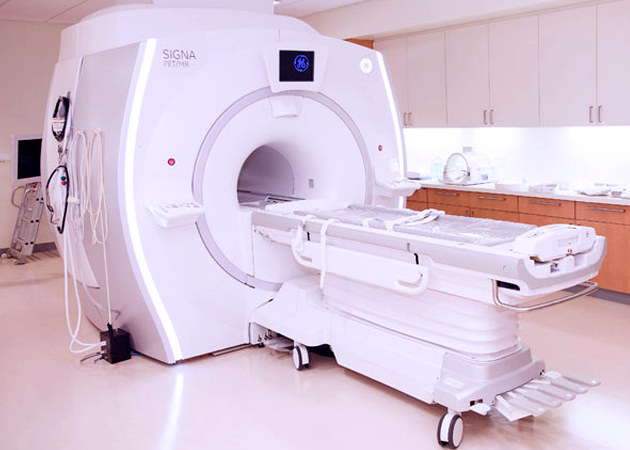Description
Magnetic Resonance Imagining (MRI) technology uses a magnetic field and radio waves to create detailed images of the internal structures of the body. An MRI exam is accurate, safe and painless.
An MRI exam detects and can help diagnose a vast array of conditions including (but not limited to):
- Tumors
- Bleeding
- Injury
- Disease
- Infection
An MRI exam may also provide further insight into an abnormality determined previously by an x-ray, ultrasound, or CT scan.
At CDC our MRI exams are performed using leading-edge MRI technology and interpreted by trained radiologists certified by the Royal College of Physicians and Surgeons of Canada.
Our private MRI services offer several benefits, including:
- Convenient appointments within 1-3 days
- Early morning and late evening exam times
- Quick reporting to your physician
- A complimentary CD of your images
- Highly-trained technologists
- Comfortable and professional exam environment

MRI does not use radiation to create the required images. There are no known side effects or risks associated with MRI. However, as with all diagnostic imaging, there should be a valid medical reason supported by your doctor before having an MRI.
Magnetic Resonance Imaging (MRI) is the most accurate method for diagnosing many health problems and diseases of the body. The imaging produced by this technology is so detailed it is like being right inside the body. MRI is ideal for diagnosing and visualizing:
- Multiple Sclerosis (MS)
- Tumors of the pituitary gland and brain
- Infections in the brain, spine or joints
- Torn ligaments in the wrist, knee and ankle
- Shoulder injuries
- Tendonitis
- Masses in the soft tissues of the body
- Bone tumors, cysts and bulging or herniated discs in the spine
- Strokes in their earliest stages
- Brain
- Temporomandibular joint
- Cervical spine
- Thoracic spine
- Lumbar spine
- Sacroiliac joints
- Shoulder
- Sternoclavicular joints
- Brachial Plexus
- Humerus
- Elbow
- Forearm
- Wrist
- Hand
- Fingers
- Abdomen
- Pelvis
- Hips
- Thigh
- Knee
- Tibia/Fibula
- Ankle
- Foot
